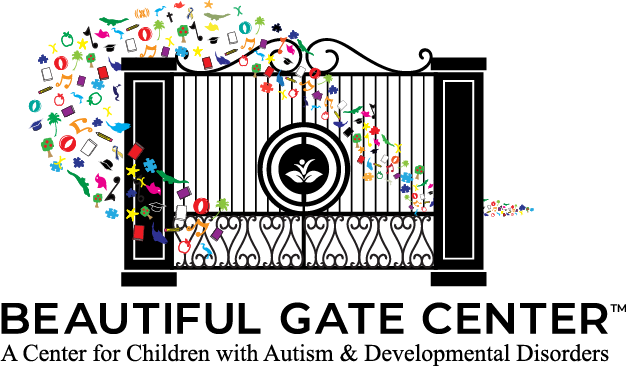Speech Therapy
Speech Services Provided
The Beautiful Gate Center™ offers direct Speech and Language Therapy to support a broad scope of disorders and challenges. Our Speech Therapy sessions are conducted onsite, one-to-one, in our clinic, with the number of treatments being determined by a completed assessment and in accordance with the insurance provider’s pre-authorization or preferred payor method. Most Speech Therapy appointments are scheduled for 30 or 60 minutes depending upon the clients age, severity, and physical abilities.
When you contact our clinic, we will begin the process of having you obtain a written authorization for ABA services, based on a referral from your chosen medical professional. A referral form may be completed by your doctor here.
Speech Therapy services are based on performing an appropriate assessment and review of the developmental and medical history of the client. Input from both the clients and parents is necessary to determine the most appropriate and functional treatment plan. Data collection is taken at each appointment along with treatment notes to monitor and track progress for each client. Our team is equipped to provide Speech Therapy treatments to individuals with moderate to severe Autism and Developmental Disabilities.
Assessments along with the client and parent interviews are designed to identify disorders in these areas:
- Oral-motor
- Articulation
- Hearing
- Fluency
- Voice
- Social language
- Receptive and expressive language
- Pragmatic language
- Auditory processing
Speech-Language Pathologists (“SLP’s”) are specially trained to evaluate and address speech, language, cognitive, feeding/swallowing and auditory impairments and provide assessments and application for the use of augmentative and alternative communication (AAC) systems and technologies.

Parents and caregivers are encouraged to speak with the speech–language pathologist (SLP) about any concerns, or questions they have about their child’s communication and feeding/swallowing skills. SLPs are always interested in talking about changes observed at home, perceived progress in therapy, collaborating with educators, or suggestions for carry-over of skills in the home and community.
Questions or Concerns You May Have
Speech-language pathologists (SLPs) work with people of all ages who have difficulty with communication. Working with children at an early age, is most recommended for an overall improved quality of life. This includes difficulty pronouncing words, understanding others, knowing what words to use, or thinking/remembering as well as helping individuals with feeding and swallowing disorders learn to expand the types and textures of the foods/drinks they are able to accept and safely swallow.
Individuals who have trouble interacting with others and understanding social cues often benefit from speech therapy services.
Speech-Language Pathologists are trained and credentialed to work cooperatively with other professionals (e.g. special education teachers, behavior analysts, physical therapists, occupational therapists) in order to maximize each child’s progress toward safe and efficient feeding/swallowing and to develop a functional communication system in a variety of settings.
Parents and caregivers are encouraged to speak with the Speech-Language Pathologist (SLP) about any concerns, or questions they have about their child’s communication and feeding/swallowing skills. SLPs are always interested in talking about changes observed at home, progress in therapy, collaborating with educators, or suggestions for generalization of skills in the home and community.
Before scheduling your child’s initial Evaluation for Speech Therapy Services, families will need to obtain a written referral from their pediatrician and have it faxed in advance to our office for Insurance and State Medicaid billing purposes.
Children and adults with communication challenges, or who have difficulty with feeding and/or swallowing will often benefit from the services of a speech–language pathologist (SLP). A diagnostic plan and comprehensive evaluation is performed to determine goals and objectives unique to each child.
Some of areas of diagnostic plan might include, but are not limited to:
- Assessment of oral–motor skills and assessment of oral anatomy and physiology
- Hearing screening
- Verbal and written expression
- Written and verbal comprehension
- Auditory processing skills
- Functional communication abilities
- Voice and resonance
- Fluency/stuttering
- Articulation and phonology
- Attention and memory abilities
- Problem solving, reasoning, and organizational skills
- Reading, spelling, and literacy skills
- Feeding and swallowing ability
- Alternative and augmentative communication needs
- and more….
Speech therapy interventions address functional communication using positive reinforcement, evidence–based practices, and a team–based, family-centered approach. Parents and caregivers play an important role on the team that works cooperatively with the individual and therapist.
